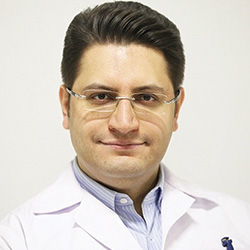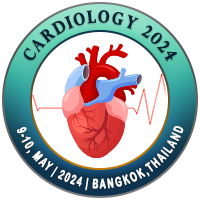
Farzad Masoudkabir
Tehran University of Medical Sciences, I.R. IranTitle: Effect of Different Blood Groups on Long-Term Outcomes of Surgical Revascularisation
Abstract
Background: ABO blood groups are considered to be associated with cardiovascular disease. Nonetheless, the definite effect of ABO blood groups on the clinical outcome of coronary artery bypass graft surgery (CABG) is still undetermined. We evaluated whether ABO blood groups can predict long-term major adverse cardiocerebrovascular events (MACCE) in CABG patients.
Method: In this retrospective cohort study, we retrieved the clinical files of eligible patients treated with isolated CABG in our hospital between March 2007 and March 2016. We divided the patients into four ABO subgroups. The primary study endpoints were the occurrence of all-cause mortality and MACCE during long-term follow-ups. We used Cox regression survival analysis to define the association of ABO blood groups with the occurrence of MACCE.
Results: Of 17,892 patients who underwent isolated CABG, 17,713 (mean age, 61.19±9.47 years, 74.6% male) were successfully followed, and their data used in the final analysis. Our multivariable analysis demonstrated that patients with different blood groups had similar 5-year mortality and 5-year MACCE.
Conclusions: Our findings suggest that in patients who underwent CABG, ABO blood groups were not associated with long-term MACCE.
Biography
Dr. Farzad Masoudkabir completed his MD & MPH and also cardiology residency at Tehran University of Medical Sciences and performed his cardiac electrophysiology fellowship at Iran University of Medical Sciences, Iran. He is an attending cardiologist and associate professor of cardiology/cardiac electrophysiology at Tehran Hear Center (Tehran University of Medical Sciences) which is the 1st ranked cardiology program in Iran. Dr. Masoudkabir also serves as head of Cardiovascular Diseases Research Institute (CVDRI) of Tehran University of Medical Sciences which is the leading cardiovascular research institute in I.R. Iran. At age of 36, he has over 50 publications that have been cited 900 times, and his publication h-index is 15. He is among the authors of ESC Textbook of Cardiovascular Medicine (2018) and he has been awarded in several cardiology congresses including American College of Cardiology Congress 2015 and International Congress on Cardiovascular Updates 2016.

